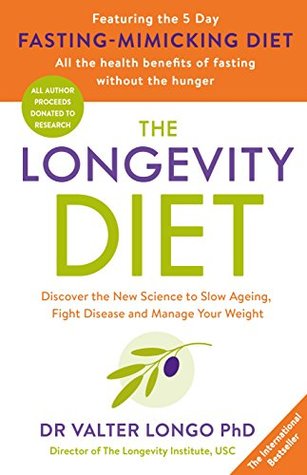healthy, lean body mass is maintained. Protein intake should be increased slightly after age sixty-five in individuals who are losing weight and muscle. For most people, a 10 to 20 percent increase (5 to 10 grams more per day) is sufficient. Finally, the diet should be free of animal proteins (red meat, white meat, cheese) with the exception of proteins from fish, but relatively high in vegetable proteins (legumes, nuts, etc.) to minimize the former’s negative effects on diseases and maximize the latter’s nourishing effects. Minimize bad fats and sugars, and maximize good fats and complex
...more
This highlight has been truncated due to consecutive passage length restrictions.


